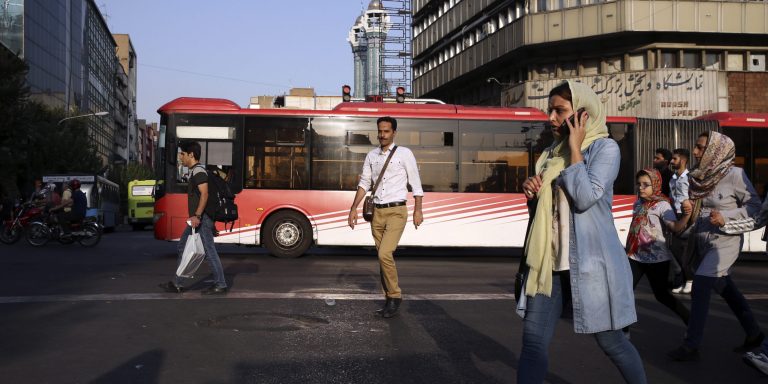INTELBRIEF
August 20, 2018
IntelBrief: Unintended Consequences of Iran Sanctions

- The Trump Administration’s pressure on foreign leaders to cooperate with re-imposed U.S. sanctions is having unintended adverse consequences on regional players including Turkey and Iraq.
- Administration policy on Iran is harming Iraq’s economy and aggravating tensions over whether Iraq should align with Washington or with Tehran.
- U.S. sanctions on Iran are worsening the financial crisis in Turkey, in part by jeopardizing Turkey’s supplies of energy from Iran.
- The re-imposition of U.S. sanctions on Iran is benefiting China, a key geopolitical competitor of the United States, because of China’s resistance to enforcing the Iran sanctions.
.
By withdrawing from the multilateral 2015 Iran nuclear deal and re-imposing all U.S. secondary sanctions on Tehran, the Trump Administration seeks, at the least, to curb Iran’s regional influence and, at most, to perhaps even bring down the Islamic Republic’s regime. The Administration’s policy depends on international cooperation with the re-imposed sanctions in order to depress Iran’s economy. However, the Administration’s insistence on such cooperation is harming Iran’s neighbors, which depend on longstanding trading arrangements with Iran, and to some extent enhancing Washington’s geopolitical competitors, particularly China.
One key unintended adverse consequence of the Trump Administration policy has been on Iraq, whose May 2018 election left unsettled the debate over Iraq’s alignment—whether with the United States or with Iran. The current Prime Minister, Hayder al-Abadi is relatively pro-Washington, but is unlikely to retain his post when a new Iraqi government is formed. Abadi sought to placate the Trump Administration by promising to enforce some re-imposed Iran sanctions. However, Iraq’s economy has become closely integrated with that of Iran since the 2003 U.S. invasion led to the accession to power of pro-Iranian factions in Iraq. Iran is a key source of natural gas that Iraq uses to produce electricity, a key commodity whose shortage has caused major demonstrations this summer. These dependencies have compelled Abadi—who is under pressure from more pro-Iranian figures, including key Iraqi Shi’a militia commanders—to implement only modest economic steps against Iran, such as a ban only on the use of the U.S. dollar for Iran-related transactions.
Another neighbor of Iran encountering difficulties due, at least in part, to U.S. sanctions on Iran, is Turkey. The value of Turkey’s currency, the lira, has fallen dramatically during the summer of 2018 as a result of both longstanding economic mismanagement and a dispute with the United States over a pastor, Andrew Brunson, that Turkey has held as part of a crackdown following the failed 2016 coup there. A contributing factor to the Turkish financial crisis has been investor perceptions that Turkey might have trouble replacing Iranian energy supplies if it enforces U.S.-led Iran sanctions. Turkey buys nearly 40% of its oil from Iran, and political strains with Saudi Arabia might make that country an unlikely alternative supplier to Iranian oil. An Iran-Turkey pipeline is the conduit not only for delivery of 6% of Turkey’s own gas needs, but also for Iranian gas sales to Europe which, if halted, would deprive Turkey of transit fees.
Conversely, China, a strategic competitor of the United States, is benefitting from the Trump Administration policy as many of Iran’s trading relationships shift to China from Europe, Japan, and South Korea. China is the largest buyer of Iranian oil with purchases of nearly a third of Iran’s oil exports and has already been investing large sums inside Iran as part of President Xi Jingping’s Belt and Road Initiative. China has said it will not cooperate with re-imposed U.S. sanctions and that it might even buy more Iranian oil than before, as Iran discounts its oil pricing to lure in customers.
The Trump Administration’s insistence on crippling Iran’s economy is in fact damaging the economies of two regional states that could constitute bulwarks against Iran’s regional influence and is serving the economic and strategic interests of the United States’ most formidable competitor, China.
.
For tailored research and analysis, please contact: info@thesoufancenter.org
[video width="960" height="540" mp4="https://thesoufancenter.org/wp-content/uploads/2018/08/IB-0820.mp4" poster="https://thesoufancenter.org/wp-content/uploads/2018/08/AP_18211627137628-1-e1534726928329.jpg"][/video]